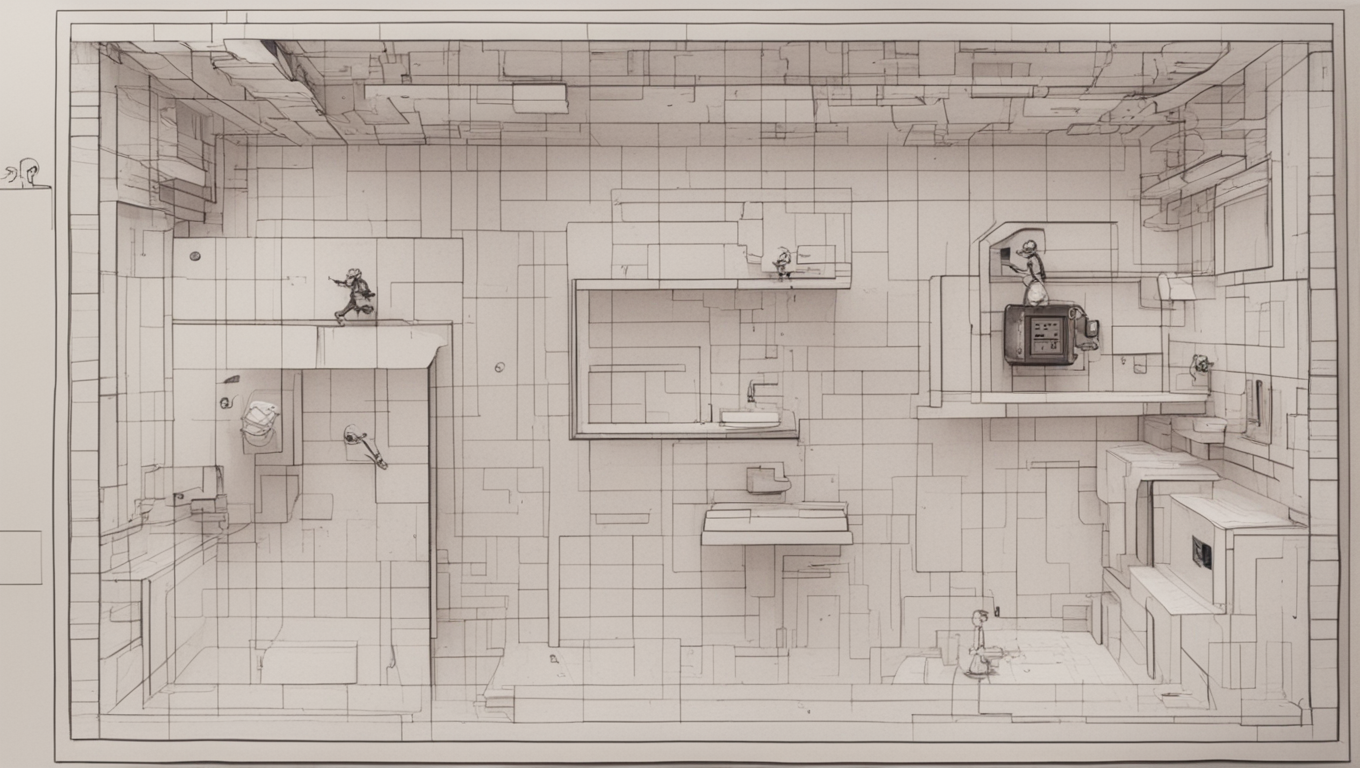In a groundbreaking development, artificial intelligence (AI) has not only surpassed humans in cognitive tasks but has also surpassed them in physical skill. Researchers in Switzerland have created an AI robot named CyberRunner that, in just six hours, learned to master a popular game of physical skill using deep reinforcement learning. This achievement is a significant milestone in the field of artificial intelligence, as it demonstrates the robot’s ability to outperform humans in physical tasks, not just cognitive ones.
The game that CyberRunner learned to play is a labyrinth marble game that requires players to steer a marble from a starting point to an end point without it falling into any of the holes on the board. Humans typically use two knobs to change the orientation of the board and direct the marble around it, relying on fine motor skills, spatial reasoning abilities, and experience. It can take humans a considerable amount of time to successfully complete the game. However, CyberRunner quickly learned from its initial mistakes and was able to complete the game in just 15 seconds.
The researchers behind this breakthrough emphasize that CyberRunner’s success is due to the application of advances in model-based reinforcement learning to the physical world. The robot captured observations through a camera looking down at the labyrinth and received rewards based on its performance. These observations were used to train the model-based reinforcement learning algorithm, which learned how the system behaved and recognized which strategies and behaviors were more successful.
Notably, CyberRunner discovered shortcuts during its learning process, allowing it to bypass certain parts of the maze and complete the game faster. However, the researchers intervened and explicitly instructed the robot not to take these shortcuts. This highlights the robot’s ability to learn and adapt its behavior based on its understanding of the game.
Professor Raffaello D’Andrea, a researcher at ETH Zurich, praised CyberRunner as an ideal testbed for research in real-world machine learning and AI. He emphasized the affordability and accessibility of this technology, stating that for less than $200, anyone can engage in cutting-edge AI research. Professor D’Andrea envisions a future where thousands of CyberRunners are deployed worldwide, enabling large-scale experiments to be conducted in parallel on a global scale.
The implications of this breakthrough extend beyond the realm of gaming. AI robots with advanced physical skills have the potential to revolutionize various industries, such as manufacturing, healthcare, and transportation. These robots could perform tasks that are physically demanding or dangerous for humans, leading to increased efficiency and safety.
The progress in AI and machine learning has prompted discussions on the safety and ethical implications of these technologies. Last month, UK Chancellor Rishi Sunak organized an artificial intelligence safety summit at Bletchley Park, where industry leaders and experts, including Elon Musk, gathered to discuss the potential risks and benefits of AI. The focus was on “frontier AI,” which offers tremendous potential for economic and societal benefits but also poses existential risks.
With AI robots like CyberRunner pushing the boundaries of what is possible, it is clear that the future of artificial intelligence holds immense promise. As we continue to advance in this field, it is crucial to ensure that we navigate the ethical and safety considerations to harness the full potential of AI while minimizing risks.





Use the share button below if you liked it.